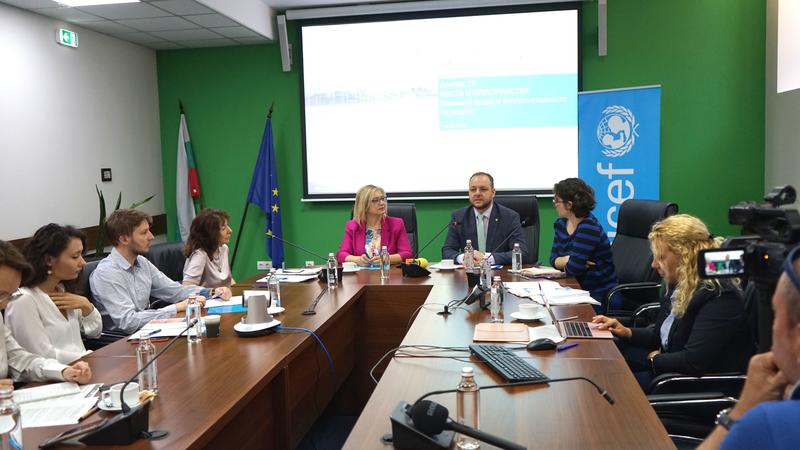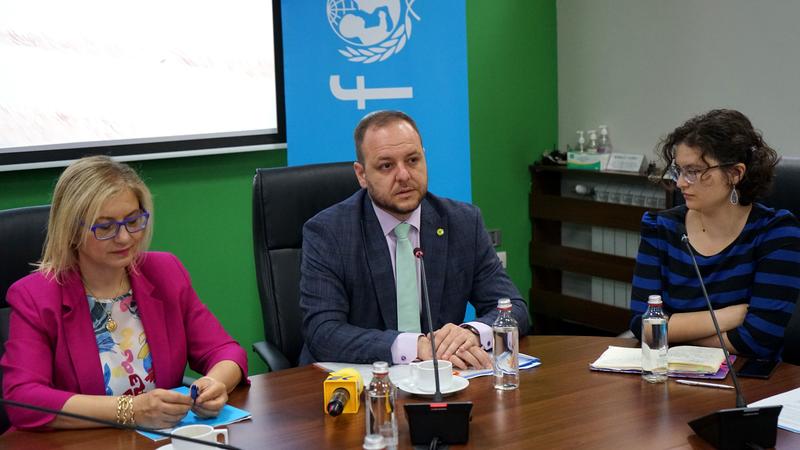Minister Borislav Sandov: We are already considering the voice of children and youth in environmental decisions
01 Jun, 2022 | 14:21“When we make decisions and determine environmental and climate change policies, we need to hear the voices of children and young people. We are already doing this and working to improve their living environment,” said Deputy Prime Minister for Climate Policy and Minister of Environment and Water Borislav Sandov today at the presentation of the UNICEF study on “Places and Spaces: the Environment and Child Welfare.” The study report was presented to the Ministry of Environment and Water (MOEW).
The MOEW is working with the Ministry of Education and Science to update the curricula so as to integrate the topic of climate change in schools. “We are actively working with the Ministry of Health to compare the public health map with the pollution map. There is a direct connection between environmental pollution and diseases”, expressed his conviction Minister Borislav Sandov. Today he announced the start of the new program of the Ministry of Environment and Water “Youth Policies in the Environmental Field” (“Youth for the Environment”). The goal of the Program is to involve more young people in activities related to environmental protection. The widest possible territorial scope of activities and inclusion of young people from small settlements in the country is encouraged.
“Every child in the world is affected by climate change, environmental degradation, and biodiversity loss. Unfortunately, actions are slow and insufficient, which means that the negative impact on children will increase. The most important thing is to start acting and to put the needs of children at the center of any environmental policy,” said Sanya Sharanovich, UNICEF Deputy Representative in Bulgaria.
The report by the UNICEF “Innocenti” Research Center analyzes how the richest countries in the world cope with providing a healthy environment for children. The comparative study was conducted among 39 developed countries with a focus on the impact of the environment on children and what measures countries can take to improve the environment in which children live and grow. Bulgaria ranks 35th in the ranking. Many children breathe toxic air at home and outside, the data shows. Bulgaria is among the countries with high levels of air pollution with fine particulate matter. Children in poor households face higher risks in terms of home air pollution, access to safe and clean water and living in dark homes.
A summary of the UNICEF report can be found HERE. You can see the presentation of Bulgaria’s position in the ranking in a short video on the topic.

